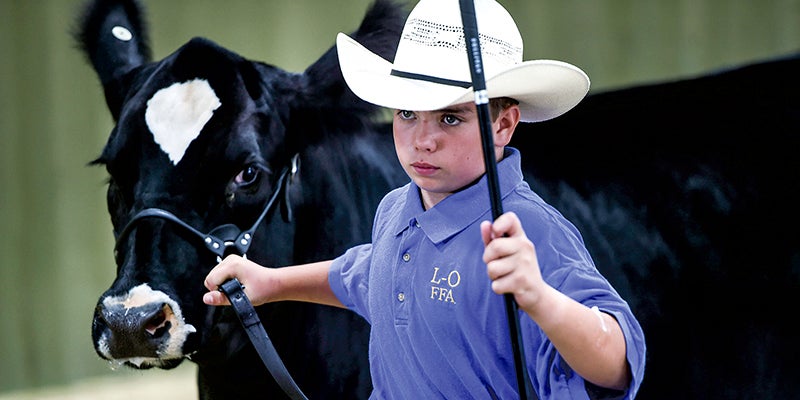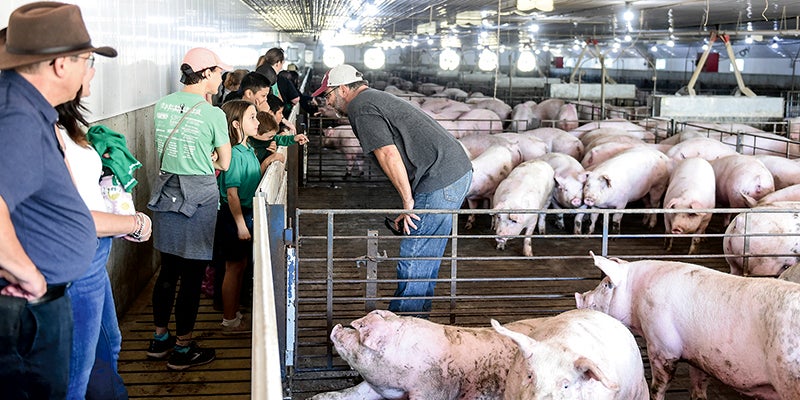Farming brothers honored for conservation
Published 5:17 pm Friday, December 23, 2022

- Ron and Al Akkerman were named 2022 Outstanding Convervationist by the Mower Soil and Water Conversation District. Photo provided
|
Getting your Trinity Audio player ready...
|
For all their lives, the Akkerman brothers have raised crops in Mower County, mostly in the Dobbins Creek watershed known for its damaging flash floods.
Several years ago, Mower Soil & Water Conservation District’s staff reached out to Ron and Al Akkerman to gauge their interest in allowing large, flood-reduction berms to be built on their cropland to capture significant amounts of stormwater runoff. These earthen, upland-storage structures change the landscape and affect farming but the brothers agreed to work with staff.
Now there are two upland-storage berms on the Akkermans’ rented cropland in the Dobbins headwaters area, and they are working with Mower SWCD staff on installing two more upland-storage structures on their own land next year.
“These water-storage berms are not traditional projects,” Mower SWCD manager Cody Fox said. “They take creative minds and a conservation ethic to move plans forward. We’re really grateful to have such conservation-minded ag cooperators like Ron and Al to help us make these plans come to life.”
The Akkermans are Mower SWCD’s 2022 Conservationists of the Year as chosen by Mower SWCD’s Board of Supervisors. Last week, Ron and Al Akkerman joined dozens of other conservation farmers and landowners in Bloomington for recognition at the Minnesota Association of Soil & Water Conservation Districts’ 86th annual convention.
Other conservation efforts by the Akkermans include no-till farming for soybeans for more than a decade on a large scale (about 20 years overall of working with the practice). For about three decades, they also have skipped applying nitrogen fertilizer in the fall to their fields; the brothers also have not done fall tillage for about the past 10 to 15 years.
That has included installing numerous grassed waterways and voluntarily establishing vegetative buffers of at least 50 feet in width along public waterways well before Minnesota’s state buffer law went into effect in 2017.
With their conservation projects, Ron Akkerman said they don’t feel like they are giving up cropland because the work and practices address problem spots in their fields.
“It’s stuff we really want to do anyway, and it’s good to have support from the SWCD to help us engineer it and get it right,” Ron Akkerman said.
The Akkermans farm cropland in Red Rock, Lansing and Waltham townships and part of eastern Freeborn County. Their conservation work has been on their own land and rental cropland.
“We farm it like we own it,” Ron Akkerman said of their rental land.
In 1955, the Akkermans’ father Alvin started the family farm south of Brownsdale with livestock that included dairy cows, beef cattle and chickens. When their father died in 1989 at age 69, the brothers continued the family business, which has long been focused on raising cash crops: corn, soybeans and alfalfa for cash hay.
Al Akkerman also serves on the board of directors for Northern Country Coop, which was honored in 2021 as Mower SWCD’s Outstanding Conservationists of the Year for the cooperative’s collaborative efforts related to soil health.
For their operation, the Akkermans have shifted from a traditional tillage system on their crop fields to skipping fall tillage and nitrogen applications. No-till with soybeans, Al Akkerman said, started when they couldn’t get the usual fall tillage done because the ground was frozen already. But skipping fall tillage worked better than expected, he said.
The Akkermans said they have not found a difference in soybean yield from doing no-till despite what other farmers think.
“Without ever trying it, people are, like ‘Well, we’d like to do no-till but it’s going to cost us yield.’ Going in, that’s the assumption,” Ron Akkerman said.
Every year is different, Al Akkerman said, and farmers need to give no-till a fair chance with their operation.
According to the U.S. Department of Agriculture, no-till farming can save time and money compared to conventional tillage as well as improve soil health, reduce stormwater runoff and lower annual fuel and labor investments. USDA says no-till has been adopted across only 21 percent of all U.S. cultivated cropland acres.
Fox has worked extensively with the Akkermans through his role as project manager for the Cedar River Watershed District, which is staffed by Mower SWCD.
“The Akkerman brothers have been instrumental in improving the water quality of Dobbins Creek and reducing its propensity for flash flooding that can lead to overtopped rural roads and major erosion,” Fox said.
Fox worked with the Akkermans to install two permanent, flood-reduction projects on rental land in Red Rock Township, southeast of Brownsdale. Those involve a 17-foot-high earthen berm that controls a 470-acre drainage area and a 7-foot-high berm controlling a 125-acre area. Combined, the projects’ maximum storage capacity is about 175 acre feet or more than 5.7 million gallons of stormwater or snowmelt runoff.
In the past year, Fox recently has worked with the Akkermans on plans to build two more upland-storage projects in 2023 in the Dobbins watershed. This will include grassed waterways below the structures to reduce downstream erosion.




